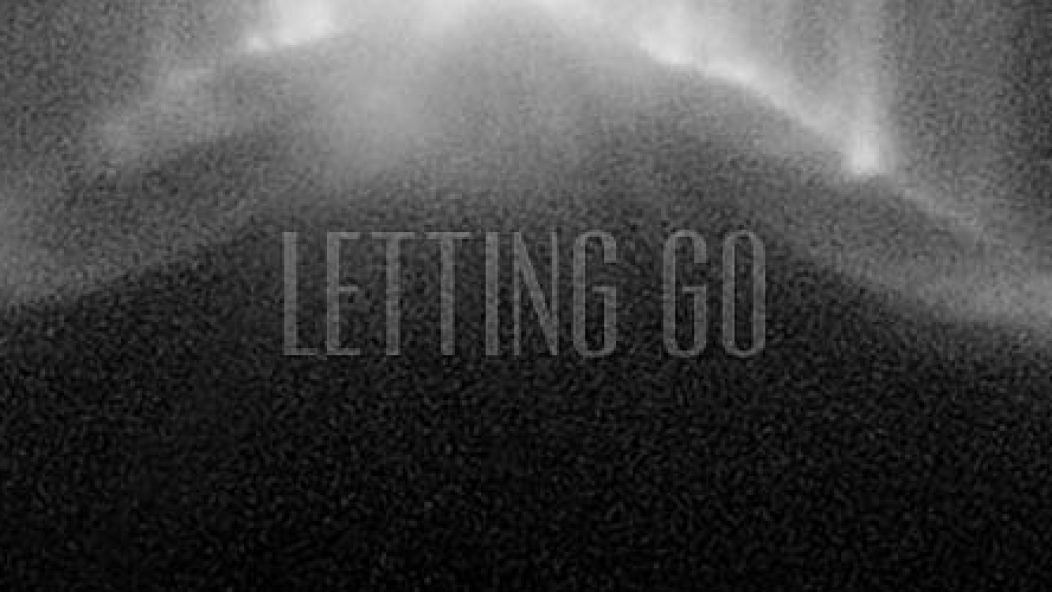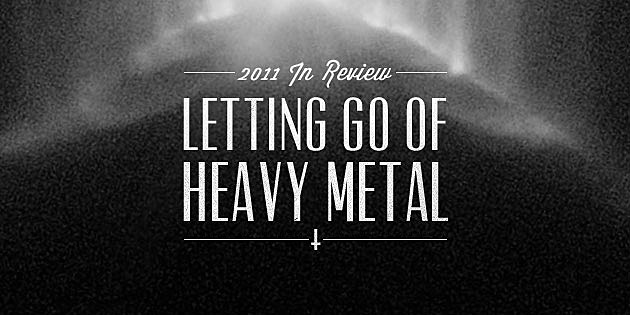
2011 In Review: Letting Go of Heavy Metal
Jean-Paul Sartre said action precedes essence. In other words, our actions define our identities—you are an honest person because you tell the truth, and not vice versa. If you lie you become in essence a dishonest person. Re-interpret: metal bands stop becoming metal bands when they stop making metal music. So how can Decibel magazine call Opeth’s Heritage the second best metal album of 2011? They listed Mastodon’s The Hunter directly behind it—the record that traded in Neurosis riffs for Beach Boys harmonies.
Old Opeth
. . .
http://www.youtube.com/watch?v=MdRmyAM8PAY
Opeth – “The Night and the Silent Water”
. . .
Vs. New Opeth
. . .
http://www.youtube.com/watch?v=pdfa5SjMKds
Opeth – “I Feel the Dark”
. . .
Continuing example: The Haunted’s critically panned Unseen shifted away from metal and toward dark radio rock, and bears more in common with Three Day’s Grace or Red than At the Gates—this from musicians once considered exemplars of the style.
Old The Haunted
. . .
The Haunted – “Bury Your Dead”
. . .
Vs. New The Haunted
. . .
http://www.youtube.com/watch?v=eY91lcDxiYU&feature=related
The Haunted – “Disappear”
. . .
Ulver’s 2011 album Wars of the Roses is another installment in a series of excellent albums bearing little-to-no resemblance to their second-wave black metal roots. Much like Opeth, Ulver emerged from a well-defined scene with a forward-thinking sound. As of 2011 Ulver have released many more albums in their newer, dark ambient/spoken word style than they ever did as a metal band.
Old Ulver
. . .
http://www.youtube.com/watch?v=t16ZxdALFeM&feature=results_video&playnext=1&list=PLF584418A436FED62
Ulver – “Hymne II: Wolf and the Devil”
. . .
Vs. New Ulver
. . .
http://www.youtube.com/watch?v=vEIxieAinKg&feature=related
Ulver- “September IV”
. . .
Metalheads in general respond in two ways when bands ‘leave’ the genre: either we become apologists and insist that these bands have not really changed, or (more often) we reject these bands for ‘abandoning’ us with illogical, hate-speech-filled vitriol—a cursory glance at the user comments on Lambgoat confirms this. The first behavior seems delusional, and the second behavior is an immature endeavor yielding no fruit. I suggest more fertile discussions: why do these bands change their behavior? Do they produce better music outside of the scene, and if so what does that mean?
I’m not opposed to this phenomenon so long as the work is still solid. Many of metal’s finest sons and daughters shifted to other modes of operating with great success while keeping their names and logos.
The Peaceville three and their ilk stand out. Anathema, Paradise Lost, and My Dying Bride each shed their gothic metal identities for more pop-oriented alternative sounds, albeit to different degrees and with varying levels of success. My Dying Bride never fled too far, while Paradise Lost dallied with synth-pop for a good portion of time. At the farthest reach of the spectrum, Anathema appear completely dedicated to their progressive alternative rock identity.
Old Paradise Lost
. . .
http://www.youtube.com/watch?v=mTSXu_ksvyM
Paradise Lost – “Gothic”
. . .
Vs. New Paradise Lost
. . .
Paradise Lost – “Mercy”
. . .
Their close musical cousins in Katatonia basically picked up where The Sisters of Mercy left off in the early ’90s. It is common knowledge that Jonas Renske of Katatonia stopped making death metal per se because he’s lost his ability to perform guttural vocals—some claim the same goes for Mikael Akerfeldt of Opeth, although his Bonnaroo performance says otherwise. That loss of vocal ability does not necessitate a shift away from metal as a style.
Old Katatonia
. . .
Katatonia – “In Silence Enshrined”
. . .
Vs. New Katatonia ( my favorite Katatonia Song)
. . .
http://www.youtube.com/watch?v=P8BAx7CqS3k
Katatonia – “Passing Bird”
. . .
For a musician seeking creative freedom, metal presents a double-edged sword.
Musically, the genre is experiencing a burst of creativity in terms of styles metalheads experiment with while producing good music including folk, jazz, post-punk/alternative, psychedelic, progressive and classic rock. On the mainstream end of the spectrum, Korn’s dalliance with heavy electronica feels significant, not because the music itself is good but because it could inspire further experimentation by others a-la Anthrax and Public Enemy’s “Bring Da Noise”.
Affairs compound when metal fandom gets involved with the music it adores. God forbid anyone type the word ‘Liturgy’ ever again (oh wait . . . ). It appears the allure of other genres is an aesthetic freedom, not a musical one.
Observe this video of Akerfeldt and Renske, along with producer and metallic-prog innovator Steven Wilson (the video is taken from his Insurgentes DVD) discussing the constraints of metal aestheticism:
. . .
Akerfeldt, Renske and Wilson
. . .
That bit about the sword with Angela Gossow? That’s comic gold right there—and also a good indicator of where metal’s limitations lie: in the aesthetic, not the sonic. But music, as a business, is aesthetic and sonic. Commerce, that magical force in modern life, connects them intimately—it’s much easier to sell an image than a song. An image takes an instant, unlike all but the shortest songs. Opeth, Ulver, and The Haunted each changed their cover art aesthetic with their sound.
Some of the aforementioned bands flourished without metal’s aesthetic concerns. Ulver and Anathema both seem committed to their new identities, and arguably enjoy greater critical acclaim in their new incarnations. Heritage has Opeth’s shortest songs (excluding interludes) ever, and apparently Akerfeldt’s singer-songwriter sensibilities come through more when he’s less concerned with writing epic death-prog chiaroscuros. Writers at the Deciblog recently defended The Peaceville three’s synth-driven work. Personally speaking, Last Fair Deal Gone Down—arguably their most saccharine work—is my favorite Katatonia record.
As for The Haunted, it is difficult to imagine anyone coming to the defense of
In 2011, metal receives more mainstream acceptance, for better or for worse, than ever before judging by top 100 album lists from Pitchfork, Spin, Yahoo, and others. At the same time, the genre is experiencing a stylistic bloom of experimentation running parallel with a rediscovery of old traditions in the genre, both of which are being exposed to a wider audience than ever before thanks to the internet. It seems like a poor time to jump ship.
So why are artists still doing it? Perhaps the explosion of creativity itself causes some issues; perhaps the artists are evolving faster than the tastes of most of their audience. Instead of old men yelling “get off my lawn”, young men and women yell “get with the times”. Endless debates over invented subgenres, accusations of commercialism, Revolver hottest-women-in-metal calendars, the very word “hipster,” modern music lovers’ allegiance to aesthetic instead of song craft; they make it less and less enjoyable for musicians to deal with their community at all. If things like this don’t go the way of the dodo, the current bumper crop could give way to famine, in terms of creativity if not quantity of work.
Newest Paradise Lost
. . .
Paradise Lost – “Faith Divides Us, Death Unites Us”
. . .
Newest Katatonia
. . .
Katatonia – “My Twin”
. . .
On the other hand, prodigal sons do return. In 2009 Katatonia and Paradise Lost both released their heaviest, most guitar-driven records in years. According to rumor, the follow-ups may be even heavier. What’s more, “Faith Divides Us, Death Unites Us” and “Night is the New Day” were more than returns to form: they retained the refined songwriting from Paradise Lost and Anathema’s goth rock albums. Those bands brought valuable goods back from their journeys into strange waters. Opeth may record another death metal record, one with the emotional punch of Heritage instead of the “black metal nonsense” of Orchid. The Haunted may plug their HM-2’s back in and record another Slaughter of the Soul, one with a B-side worth listening to. And while it seems unlikely, Ulver may record another black metal record—one that sounds like their would-be successors in Krallice, except with monologues and “phone sex” singing. I have enough money for a vinyl tucked away for 2012, just in case.
. . .












